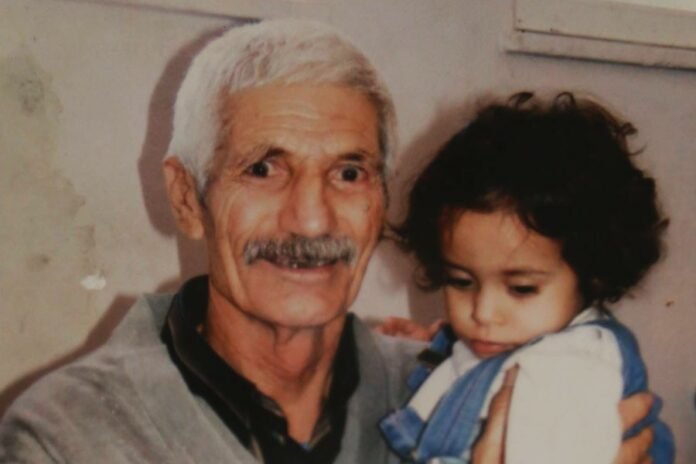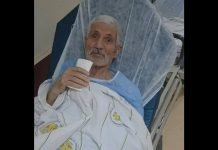An ailing 83-year-old man in southeastern Diyarbakır Prison has been given a medical report saying he is fit to remain in prison despite a previous medical report stating otherwise, the Mezopotamya News Agency (MA) reported.
Mehmet Emin Özkan, who has been in prison for the past 25 years, has suffered four heart attacks. He has other health problems as well, such as high blood pressure, toxic goiter, osteoporosis, kidney disease, memory loss and loss of hearing and sight. Özkan is unable to take of his basic daily needs so his cellmate, Ahmet Güneş, assists him.
However, due to COVID-19 regulations Güneş has to quarantine each time he helps Özkan go to the hospital and sometimes cannot see his family on visiting days for this reason.
The report, which was issued on March 3, confirmed Özkan’s health problems but said “he can lead an independent life and take care of his own needs.” It also said Özkan’s health needed regular monitoring.
A past medical report issued in 2015 said Özkan was almost totally disabled and was not fit to remain in prison.
Özkan was sentenced to aggravated life for alleged membership to the outlawed Kurdistan Workers’ Party (PKK). He was found responsible for the death of Brig. Gen. Bahtiyar Aydın in October 1993. However, Özkan has denied any responsibility in the incident.
The charges against Özkan were based on two witness testimonies that were later recanted. In a 2014 indictment for what is known as the “Lice trial,” the Diyarbakır Public Prosecutor’s Office said there was no tangible evidence that Özkan had ever taken part in terrorist activities. The trial concerned the alleged illegal activities of gendarmerie intelligence units known as JİTEM.
The PKK has been waging an armed insurgency against Turkey’s security forces since the ’80s in a campaign that has claimed the lives of some 40,000 people. The group is listed as a terrorist organization by Turkey, the European Union and the US.
Özkan is now waiting for a decision on a retrial, and has a hearing on May 6.
Özkan’s daughter Selma Özkan said they were outraged about the medical report. “According to the report my father does not have any disabilities, but how can this be possible?” she said. “His medical problems are listed in the report but at the end it says there is no medical reason for him to be released.”
Selma Özkan added that each month there was news of sick inmates dying, and she was afraid her father would be next. “We have no hope that he will be released,” she said.
Human rights activists and opposition politicians have frequently criticized authorities for not releasing critically ill prisoners so they can seek proper treatment. Human rights defender and former Peoples’ Democratic Party (HDP) deputy Ömer Faruk Gergerlioğlu said ill prisoners were not released until they were at the point of no return.
According to Gergerlioğlu sick prisoners are released when the authorities realize they will die soon. He claimed that prisoners did not have access to proper healthcare facilities such as hospitals or infirmaries.
According to the most recent statistics published by the Human Rights Association (İHD), the number of sick prisoners is in the thousands, more than 600 of whom are critically ill. Although most of the seriously ill patients have forensic and medical reports deeming them unfit to remain in prison, they are not released. Authorities refuse to free them on the grounds that they pose a potential danger to society.
A number of critically ill prisoners passed away in 2020 because they were not released in time to receive proper medical treatment.
Since April 2020, four seriously ill prisoners over the age of 70 have died in penal institutions in Turkey; five inmates suffering from cancer died shortly after they were released; and 16 died of chronic illnesses while imprisoned.















[…] Click For The Original Source . . . . . . . . . . . . . . . . . . . . . . . . . . . . . . […]